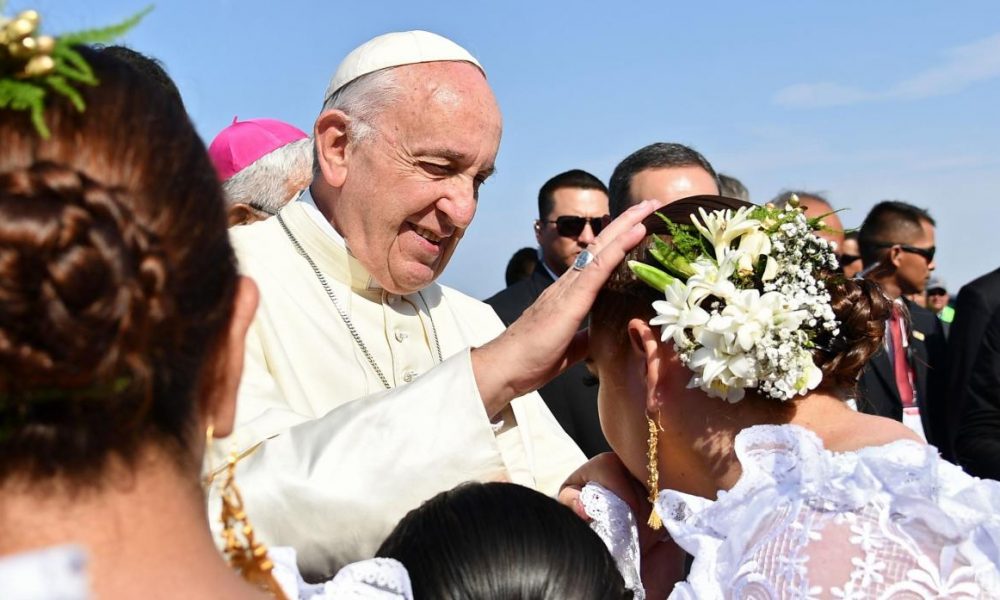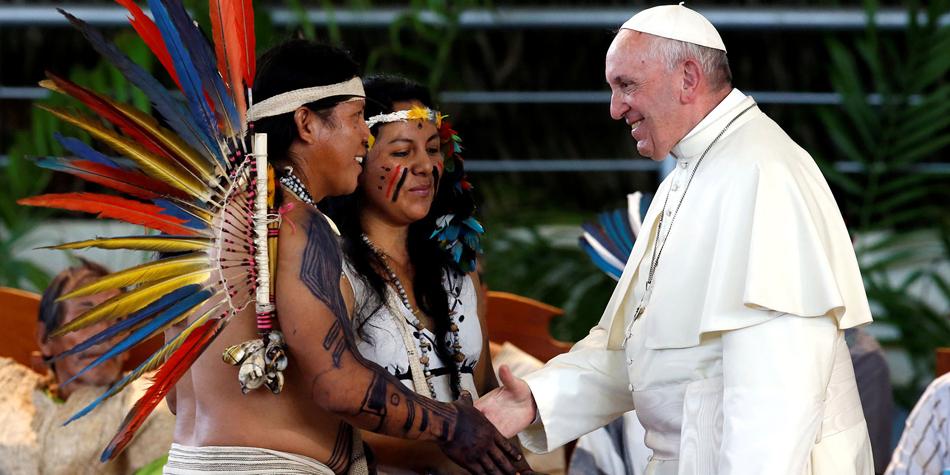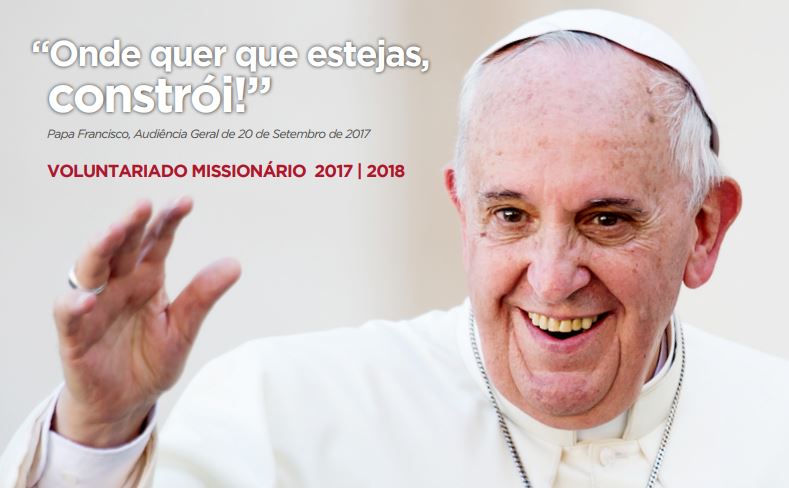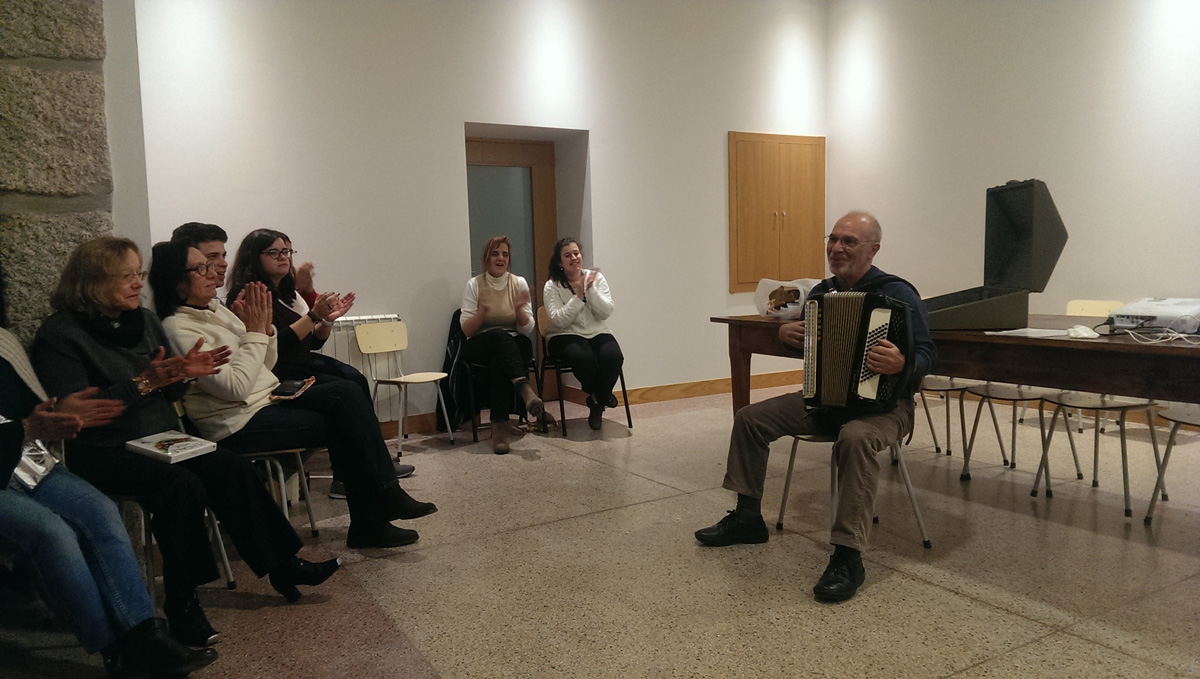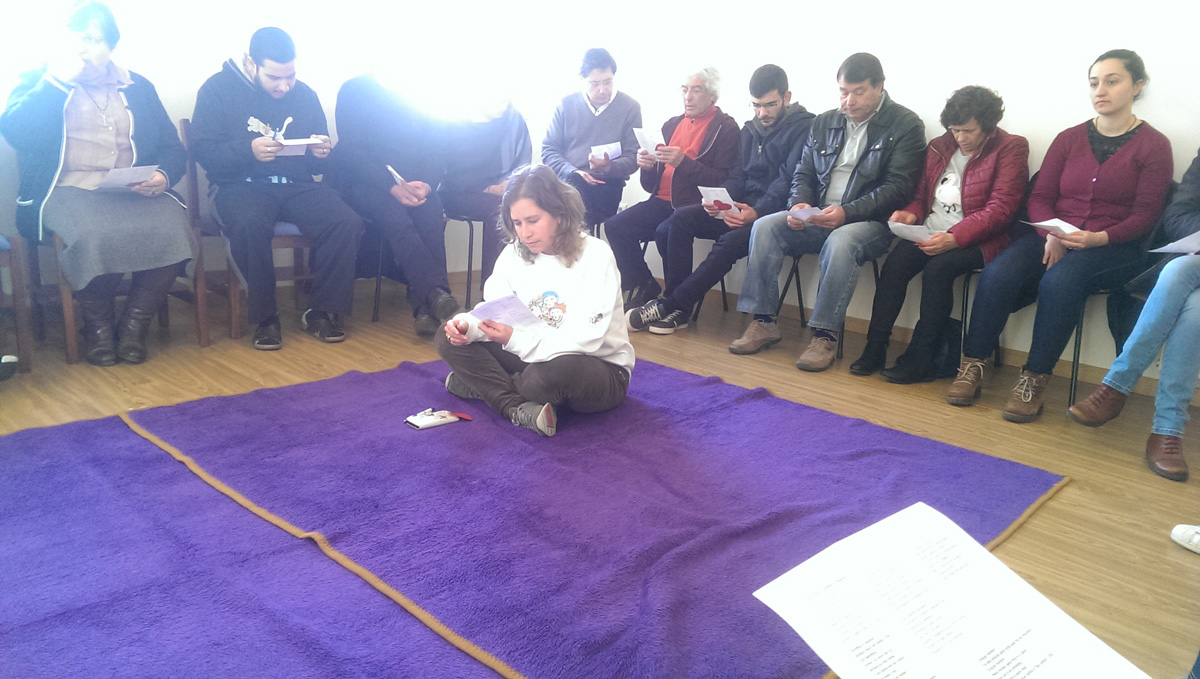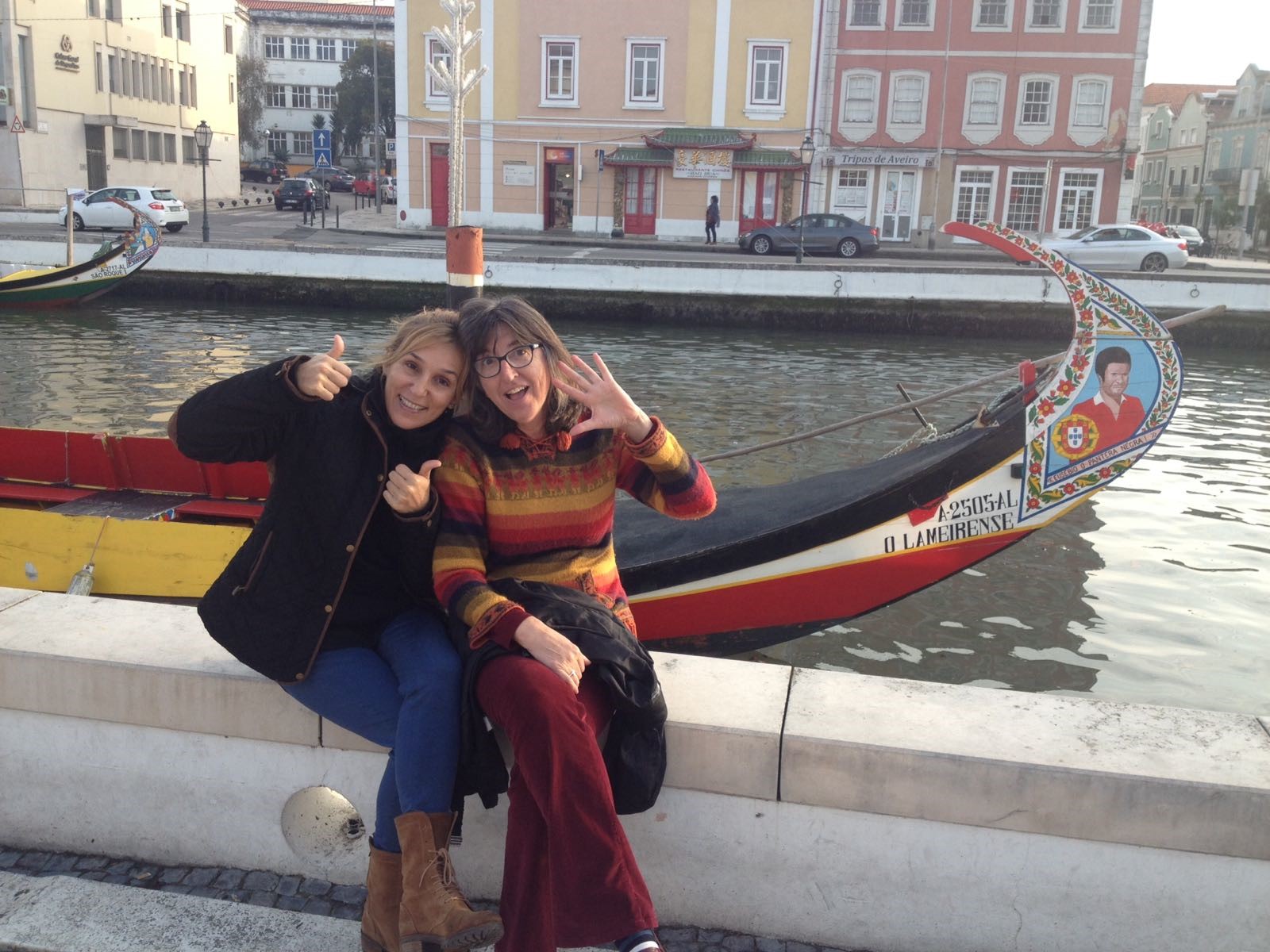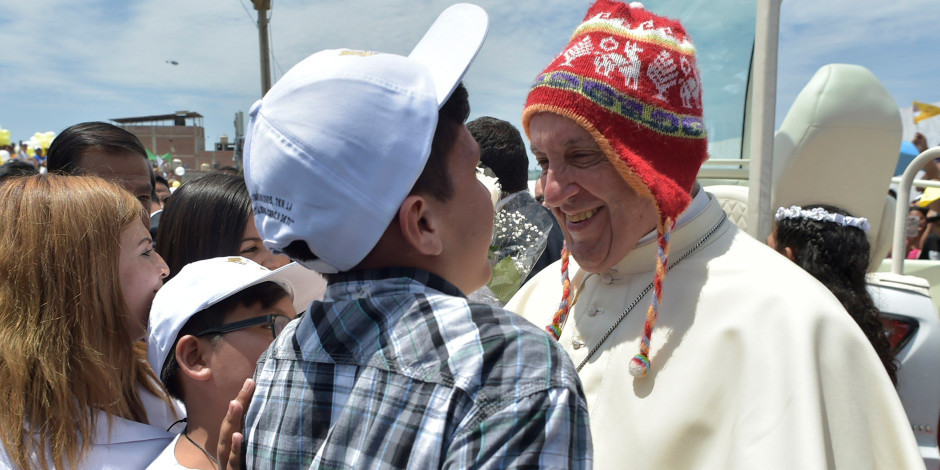 The coming of the Pope to Peru did not leave the Peruvians indifferent. His closeness to the people touched their hearts. Many were the reports of those who accompanied him personally and on TV. Joy reigned in Peru just as we still live it in these days under the banner of hope left to us by the Pope of the people. It was a Pope who embraced the great open wounds of Peru by asking for a change that can only happen if we know to hold hands like brothers as we search for a truly common home.
The coming of the Pope to Peru did not leave the Peruvians indifferent. His closeness to the people touched their hearts. Many were the reports of those who accompanied him personally and on TV. Joy reigned in Peru just as we still live it in these days under the banner of hope left to us by the Pope of the people. It was a Pope who embraced the great open wounds of Peru by asking for a change that can only happen if we know to hold hands like brothers as we search for a truly common home.
In this journey of preparation for the Youth Synod, the Pope did not depart without leaving a challenging message of love and joy. With his words he reminded us that young people are not the future, as it is often said, but rather the present in a world to which they must not and cannot remain indifferent.
“Dear young people, I am pleased to be here with you. These meetings are very important for me, especially in this year of preparation for the Synod on young people. Your faces, your questions and your lives are important for the Church and we need to give them the importance they deserve. We must also have the courage of the many young people of this land who were not afraid to love and risk everything for Jesus.
Dear friends, how many examples you have! I think of Saint Martin de Porres. Nothing prevented that young man from achieving his dreams, nothing prevented him from spending his life for others, nothing prevented him from loving, and he did so because he had realized that the Lord loved him first. Just as he was: a mulato. He had to face many hardships. In the eyes of others, even his friends, it seemed that he had everything to lose, but he knew how to do one thing that would be the secret of his life: he knew how to trust. He trusted in the Lord who loved him. Do you know why? Because the Lord had trusted him first; just as he trusts each of you and will never tire of trusting you.
You may say that sometimes this is very difficult. I understand that. In those moments, we can think negative thoughts, we can feel overwhelmed by different situations, and it can seem that we are left on the sidelines, while they have the upper hand. But it’s not like that, is it?
There are moments when you can feel powerless to achieve your desires and dreams. We have all experienced situations like that. Dear friends, in those moments when our faith seems to fade, remember that Jesus is by your side. Do not give up! Do not lose hope! Remember the saints who accompany us from heaven. Go to them, pray and never tire of asking for their intercession. Not only the saints of the past, but also those of the present: this land has many of them, because it is a land of saints. Ask for help and advice from people you know can give good advice because their faces radiate joy and peace. Let them accompany you as you journey along the path of life.
Jesus wants to see you on the move. He wants to see you achieve your ideals and to be enthusiastic in following his instructions. He will take you along the path of the beatitudes, a path that is not easy but exciting, a path that cannot be traveled alone, but only as a team, where each member offers the best of his or her self. Jesus is counting on you as he counted long ago on Saint Rose of Lima, Saint Turibius, Saint Juan Macías, Saint Francisco Solano and so many others. Today he asks if, like them, you are ready to follow him. Are you willing to follow him? To be guided by his Spirit in making present his Kingdom of justice and love?
Dear friends, the Lord looks on you with hope. He never grows discouraged with us. Perhaps we are the ones who grow discouraged, about ourselves or about others.
I know that we all like to see digitally enhanced photographs, but that only works for pictures; we cannot “photoshop” others, the world, or ourselves. Color filtering and high definition only function well in video; we can never apply them to our friends. There are pictures that are very nice, but completely fake. Let me assure you that the heart can’t be “photoshopped,” because that’s where authentic love and genuine happiness have to be found.
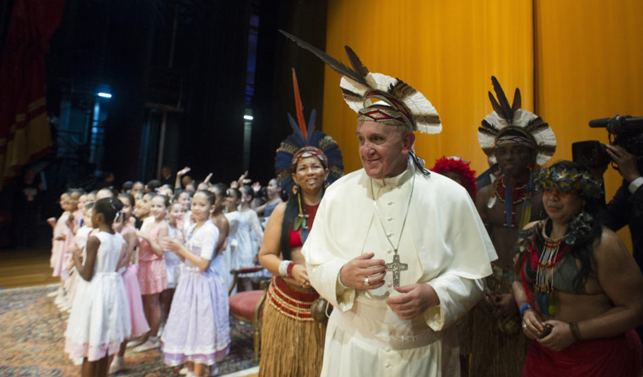 Jesus does not want you to have a “cosmetic” heart. He loves you as you are, and he has a dream for every one of you. Do not forget, he does not get discouraged with us. But if you get discouraged, I invite you to take a look at the Bible and remember the kind of friends God chose.
Jesus does not want you to have a “cosmetic” heart. He loves you as you are, and he has a dream for every one of you. Do not forget, he does not get discouraged with us. But if you get discouraged, I invite you to take a look at the Bible and remember the kind of friends God chose.
Moses, he was not articulate; Abraham, an old man; Jeremiah, very young; Zacchaeus, small of stature; the disciples, who fell asleep when Jesus told them they should pray; Paul, a persecutor of Christians; Peter, who denied him… and we could go on with this list. So what excuse can we offer?
When Jesus looks at us, he does not think about how perfect we are, but about all the love we have in our hearts to give in serving others. That is the important thing for him, and he will always be concerned about that. He does not worry about your height, or whether you speak well or badly, whether you fall asleep when you pray, or whether you are very young or very old. His only question is this: Do you want to follow me and be my disciple? Don’t waste time disguising your heart, but instead fill your life with the Spirit!
Jesus is constantly waiting to give us his Spirit, who is the Love that God wants to pour into our hearts, to make us his missionary disciples.
In following Jesus, we never, ever, remain shut out. Even if we make mistakes, the Lord always gives us a new opportunity to keep walking with him.
Dear young people, in my prayers, I entrust you to the care of the Virgin Mary. Be assured that she will accompany you at every moment of your life, at all the crossroads of your journey, especially at those times when you have to make important decisions. She will always be there, like a good Mother, encouraging and supporting you, lest you grow discouraged. And if you get discouraged by anything, do not worry, for she will tell Jesus. Just don’t stop praying, don’t stop asking, don’t stop trusting in her maternal protection.
Pope Francis to the young people in Peru
On Sunday, as we usually do it, we gathered with the youth group after the Eucharist. We had all experienced this grace of knowing we were far away, but at the same time so close to the representative of God on earth. We had nothing planned, actually we gathered at our house with the idea of having a short prayer and share what each one of us felt about the presence of the Pope. However, we were surprised when on getting the TV connection, we listened to one of the most challenges talks of the Pope to young people. We were silent. We listened to each word pronounced by such a wise person. Almost by surprise we prayed together. We experienced a piece of heaven on Peruvian soil.
Villa Ecológica (Arequipa), January 21, 2018
Paula and Neuza, CLM in Peru




